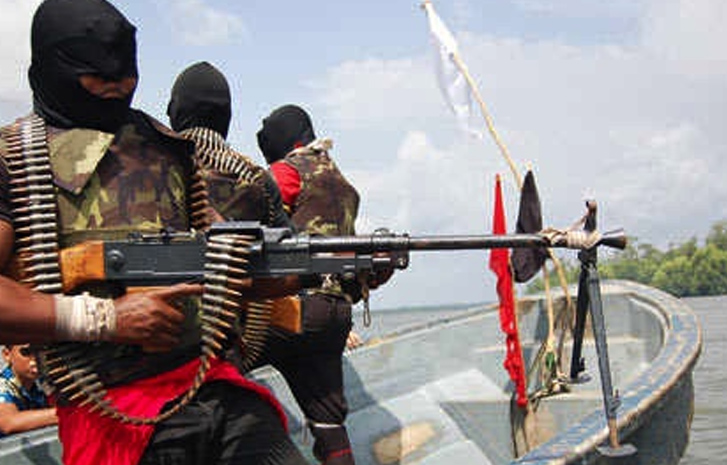The Nigerien military has announced the killing of a long-time Boko Haram commander known as Bakoura, claiming responsibility for a precision strike that targeted his hideout on Shilawa Island in southeastern Niger.
According to army officials, “an air force fighter aircraft launched three targeted and successive strikes on the positions Bakoura used to occupy in Shilawa.”
The man identified as Bakoura, whose real name was Ibrahim Mahamadou, had been serving as the group’s leader since 2021. Military authorities disclosed the announcement, underscoring the significance of the strike against one of the region’s most entrenched jihadist figures.
Mahamadou, originally from Nigeria, reportedly joined Boko Haram 13 years ago. He rose through the ranks and assumed control of the group following the death of Aboubacar Shekau, one of its most notorious leaders.
The army said he was in his forties when he was killed during the early hours of the operation. His death took place in the Lake Chad basin, an area where the borders of Niger, Nigeria, Chad, and Cameroon converge. However, the claim has not yet been independently verified.
Regional Violence Sparks Renewed Security Concerns
West Africa has faced mounting insecurity as Boko Haram operations intensify. Since the beginning of the year, the group has staged repeated incursions into military installations, sabotaged critical road networks, and attacked villages.
Last Monday, four security personnel were killed in a Boko Haram raid targeting farmers in Nigeria’s Borno State, a region that shares its borders with Niger.
Governments in the Lake Chad Basin have pledged to tighten security and strengthen regional counterterrorism cooperation. Their efforts have produced some notable developments in recent weeks.
In August, Chadian authorities reported the arrest of Muslim Mohammed Yusuf, the 18-year-old son of Boko Haram’s founder, Mohammed Yusuf. The arrest was presented as a symbolic breakthrough in the fight against insurgency in the region.
Similarly, Nigeria’s national security adviser announced on Saturday that security forces had detained leading figures of the extremist groups Ansaru and Mahmuda. These two men were credited with masterminding the 2022 Kuje prison attack, which facilitated the escape of dozens of Boko Haram fighters, as well as a 2013 assault on Niger’s uranium facility.
Boko Haram, officially called Jama’atu Ahlis Sunna Lidda’awati wal-Jihad, has long been one of the most feared insurgent groups in West Africa. Founded in northeastern Nigeria in 2002 by Mohammed Yusuf, the group initially advocated for an Islamic state based strictly on Sharia law.
The group’s name, often translated as “Western education is forbidden,” reflects its staunch rejection of modern education and governance systems. Boko Haram expanded its violent campaign after a 2009 Nigerian military crackdown killed Yusuf, paving the way for Abubacar Shekau to assume command. Shekau’s rule was characterized by extreme brutality, including mass kidnappings, suicide attacks, and the use of children as fighters.
Under Bakoura’s leadership, the group remained active, continuing to launch cross-border raids despite facing intensified military pressure from regional coalitions.
The insurgency’s toll has been catastrophic. More than two million people have been displaced across Nigeria, Niger, Chad, and Cameroon, creating sprawling camps of refugees and internally displaced persons. Schools, health facilities, and entire local economies have been devastated, while communities live under constant threat.
The group’s actions have drawn global condemnation, particularly after the 2014 abduction of more than 270 schoolgirls from Chibok in Nigeria, an incident that highlighted Boko Haram’s ruthless targeting of women and children.
International organizations, including the United Nations, have consistently called for stronger efforts to address the humanitarian fallout. Military campaigns by regional and multinational forces have succeeded in limiting Boko Haram’s territorial influence, yet its ability to strike sporadically across porous borders remains a persistent danger.
For governments in the Lake Chad Basin, the reported killing of Bakoura represents both a tactical win and a reminder of the enduring complexity of the insurgency. The challenge of counterterrorism in the region underscores the delicate balance between military operations, humanitarian assistance, and long-term peacebuilding.
READ ALSO: Gaza Famine Deemed Direct Result Of Israel’s Actions



















